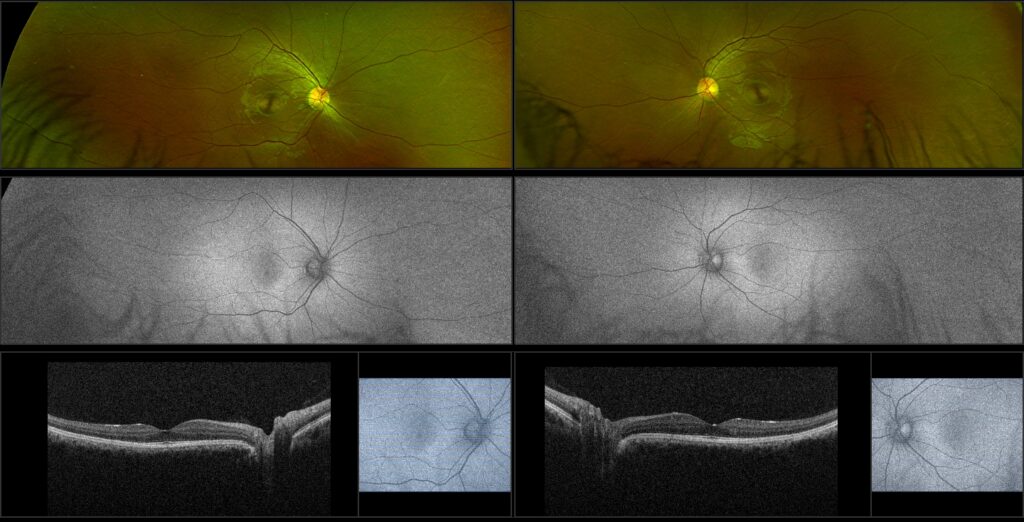When was the last time you scheduled a comprehensive eye exam? If you think it’s just about getting new glasses or contact lenses, think again. Your eyes are often described as windows to the soul, but did you know they’re also windows to your overall health? What’s lurking behind those peepers could reveal surprising health issues that may not show any symptoms—yet. Keep reading to uncover five unexpected health problems that an eye exam can detect and why scheduling one might just save more than your vision.
1. Diabetes: An Impending Threat Revealed Through Your Eye Exam
Diabetes often starts silently, with no obvious warning signs. However, an eye exam can detect early indicators of diabetic retinopathy, a condition where high blood sugar damages the blood vessels in your retina. Tiny hemorrhages, swelling, or unusual blood vessel growth in your eyes can point to diabetes long before other symptoms appear. Early detection through your eyes could prevent complications like vision loss and allow for timely medical intervention.
Diabetes is one of the fastest-growing health concerns globally, and its connection to eye health is profound. Studies show that nearly one-third of individuals with diabetes are unaware they have it until complications arise. This underscores the importance of regular eye exams for catching this condition early, particularly if you have a family history or are at risk due to lifestyle factors.
Your eye care professional doesn’t just look for signs of diabetic retinopathy during an exam. They may also detect other eye-related complications of diabetes, such as cataracts or glaucoma. By keeping up with annual check-ups, you can reduce the risk of severe vision impairment and maintain better control over your overall health.
2. High Blood Pressure: A Sneaky Culprit Behind Blurred Vision
High blood pressure isn’t just a risk for your heart; it’s also a hidden danger to your eyes. During an eye exam, your optometrist can spot hypertensive retinopathy, which shows up as narrowing blood vessels or bleeding at the back of the eye. Left unchecked, high blood pressure can lead to severe complications, including stroke or heart disease. Your eyes could provide a crucial clue to take control of your health.
Hypertension affects nearly half of all adults, yet many people are unaware they have it. Regular eye exams can act as an early warning system, particularly for those who don’t frequently visit their primary care physician. Beyond hypertensive retinopathy, elevated blood pressure can increase the risk of eye conditions like retinal vein occlusion, which can cause sudden vision loss.
Lifestyle changes, medication, and ongoing monitoring can effectively manage high blood pressure. But the first step is knowing there’s an issue—and your eyes may hold the key to uncovering it.

3. Autoimmune Diseases: Clues Hiding in Your Dry Eyes
Conditions like lupus, rheumatoid arthritis, or Sjögren’s syndrome often leave a trail of clues in your eyes. Chronic dryness, inflammation, or unusual deposits observed during a comprehensive eye exam can signal an underlying autoimmune disorder. Early detection can lead to better management of these complex conditions and prevent further damage.
Sjögren’s syndrome, for example, often presents with severe dryness that affects not just the eyes but other parts of the body. Lupus and rheumatoid arthritis can also cause inflammation in the eyes, leading to discomfort and vision problems. These issues might seem minor initially, but without treatment, they can result in long-term complications.
An eye exam that includes specialized tests for tear production and ocular surface health can provide valuable insights. By addressing these symptoms early, patients can work with their healthcare team to develop a treatment plan that improves both their eye health and quality of life.
4. High Cholesterol: A Warning Sign You Can’t Afford to Ignore
Your eyes might reveal high cholesterol levels through the appearance of yellowish deposits on your eyelids (xanthelasma) or a gray ring around your cornea (arcus senilis). High cholesterol can block blood flow and increase the risk of heart attacks or strokes. Spotting these signs during an eye exam can motivate lifestyle changes and medical treatments that could save your life.
Cholesterol deposits in the eyes might seem superficial, but they’re often indicative of deeper cardiovascular concerns. Research has shown that people with visible xanthelasma have a higher risk of developing heart disease. Similarly, the presence of arcus senilis in younger individuals may point to inherited cholesterol disorders that require immediate attention.
In addition to lifestyle modifications, your healthcare provider might recommend medications to lower your cholesterol levels. Regular follow-ups with both your eye care specialist and primary physician can help you stay on top of your cardiovascular health.
5. Brain Tumors: What Lies Beneath
As alarming as it sounds, a brain tumor can sometimes be detected during an eye exam. Changes in your optic nerve, unexplained vision loss, or unusual pupil reactions could be signs of increased intracranial pressure. While rare, these findings underscore how vital regular eye exams are for your overall health.
Brain tumors often present with subtle symptoms that can be easily overlooked. However, an optometrist’s careful examination of the optic nerve and visual fields can reveal abnormalities that warrant further investigation. Early detection is crucial, as it increases the chances of successful treatment and recovery.
It’s worth noting that other neurological conditions, such as multiple sclerosis, can also manifest through eye-related symptoms like double vision or rapid eye movement. Comprehensive eye exams equipped with advanced diagnostic tools can play a pivotal role in identifying these conditions early.
The Importance of Scheduling a Regular Eye Exam
Your eyes do so much more than help you see the world; they offer a unique glimpse into your overall health. Eye exams aren’t just about vision correction—they’re about safeguarding your future. From detecting early signs of diabetes and high blood pressure to uncovering life-threatening conditions like brain tumors, comprehensive eye exams are a critical tool in preventive healthcare.
Even if you think your vision is perfect, annual or biannual eye exams should be a priority. Certain health issues detected during these exams can progress silently, causing irreversible damage if left untreated. By making eye health a regular part of your wellness routine, you’re taking an important step toward a healthier, longer life.
Schedule a Comprehensive Eye Exam at Optical Illusions
If you’re ready to elevate your experience with prescription polarized sunglasses or simply want to protect your eyes from glare and UV damage, our dedicated team is here to help. Regular eye exams are vital for maintaining long-term eye health and ensuring your eyewear meets all your needs. Visit one of our convenient locations and let us help you see the world—whether through your favorite pair of polarized sunglasses or the crystal-clear vision you deserve.
At Optical Illusions: An Optometric Practice, we believe that all children deserve to see clearly and have the best in eye health. Our comprehensive exams include screenings for ocular risk, advanced diagnostic instruments, and personalized care plans to keep your eyes healthy. Schedule an eye exam at one of our convenient locations in San Jose, San Mateo, San Ramon, and Juneau.



